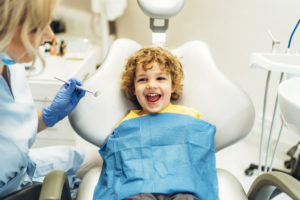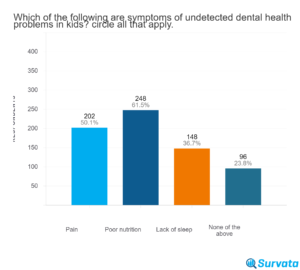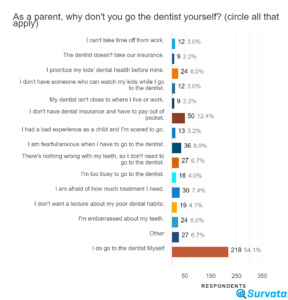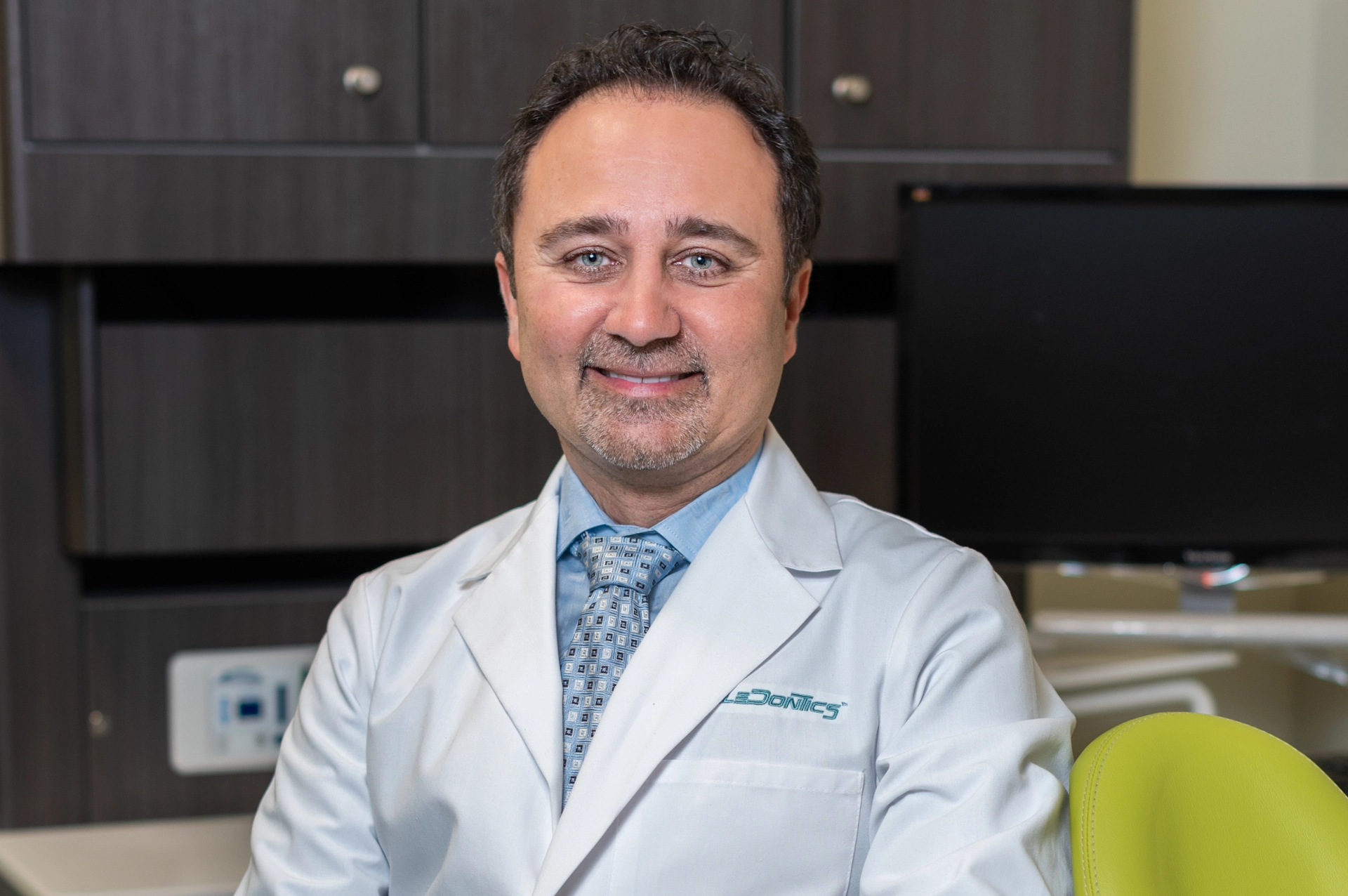
TL;DR:Teaching dental hygiene to preschoolers takes patience, consistency, and a whole lot of creativity—but it’s the foundation for a lifetime of healthy smiles.
- Healthy mouths mean healthy kids: Poor oral hygiene in young children can lead to pain, poor sleep, nutrition issues, and even lower academic performance.
- Parents set the tone: From brushing together to making dental visits fun, your example shapes how your kids view oral care.
- Make brushing fun and rewarding: Using toothbrush songs, brushing charts, and small incentives can turn dental routines into games kids actually enjoy. Choose oral care products that add whimsy, fun, and function to their daily dental routine.
- The right foods matter too: Teaching preschoolers about dental health includes offering tooth-friendly snacks and cutting back on sugary drinks—even 100% juice.
- Kid-friendly dentists make a big difference: A fun, welcoming dental office like The Super Dentists helps reduce fear and builds lifelong comfort with dental visits.
Teaching oral hygiene to preschoolers is important but trickier than it sounds! Establishing good dental hygiene from childhood is essential for your kids overall health.
Teaching dental hygiene to preschoolers will help them maintain a lifetime of healthy oral habits. It’s essential that you address any issues right away and ensure they know how to properly care for their teeth.
Why Does Good Oral Hygiene Matter?
Oral hygiene is important for keeping your kids’ teeth, gums, and mouth as healthy as possible. You’ll help your kids enjoy bright, healthy smiles and help them avoid painful dental problems down the road. But you might not realize that good oral hygiene also helps ensure your kids’ overall well-being.
When you focus on early childhood oral health, you’re freeing your kids (and yourself) from several problems. You won’t have to worry so much about symptoms of undetected dental health problems in kids, all of which can cause physical, social, and academic issues for your children. Dental problems could cause:
• Pain
• Poor nutrition
• Lack of sleep
• Poor performance in school
In fact, children with dental problems are three times more likely to miss school and four times more likely to get a below-average GPA. Kids may also be made fun of for poor oral hygiene and dental problems can impact performance in school.
Additionally, when you teach your child healthy dental hygiene early on, you’ll also help them maintain better whole-body health. The mouth is the gateway to the body, so a healthy mouth ensures a healthier body. Once you learn how to teach a child to practice good oral hygiene, you can feel confident knowing you’re setting them up for a lifetime of good health. That’s why dental health for preschoolers is about more than just brushing or flossing. It’s about setting your little ones up for long-term whole health and wellness by starting with the teeth and gums.
How to Teach Oral Hygiene to Elementary Students: 10 Simple Steps
Teaching dental hygiene to elementary students requires you to have patience and to also understand oral health yourself. You want to make the process as enjoyable as possible at a young age so they associate dental health with good times. This starts with establishing the right routine and culminates in using the right products for preschoolers.


1. Lead by example
The most important thing you can do to teach dental hygiene to elementary students and preschoolers is to model great oral care yourself. Unfortunately, a lot of parents don’t take good care of their own teeth. In fact, a recent survey revealed that many parents don’t go to the dentist often enough (or at all), for 54.1% of parents surveyed. Parents reported that they don’t go to the dentist for a variety of reasons, including:
• Fear and embarrassment about seeing the dentist themselves
• Fear about dental treatment
• Lack of dental insurance or funds for out-of-pocket costs
• Putting their kids’ dental health before their own
While all of these reasons are understandable, it’s also essential to set a great oral health example for your kids. Your kids watch everything you do and, like it or not, they follow your lead. If they see you brushing properly, flossing every day, and seeing your dentist regularly, they’re much more likely to do it without a fuss, too. So leading by example is step one in any plan for teaching dental hygient to preschoolers. Not sure where to get started? The American Association of Pediatric Dentists (AAPD) offers a helpful parent’s resource hub.
2. Take your kids to your dental checkups
One way to make sure your kids see you going to the dentist is to bring them with you! This can be especially helpful for younger kids so that they can see what happens at the dentist and get used to the sounds, smells, and surroundings.
Since the American Dental Association recommends visiting the dentist twice a year, that’s 2 opportunities to teach your kids that dentists are good friends to have. Show them that there isn’t anything to be scared of and that the dentist’s office can actually be a fun place!
Going to a family-friendly dentistry like The Super Dentists makes this even easier!
3. Provide healthy foods
Help ensure your kids’ teeth and gums stay healthy by offering a variety of mouth-friendly foods to your kids. Steer clear of sugary and acidic foods and drinks, as well as crackers and other sticky carbs that stay in your teeth.
Even 100% fruit juice contains natural sugars that can be harmful if consumed in large quantities. It’s better to limit fruit juice intake and encourage water or milk instead.
Many breakfast cereals marketed to children are high in sugar, leading to a higher risk of cavities.
Instead, opt for fresh vegetables and fruit, and stick with drinking water (or your child’s daily allowance of milk) to keep mouths happy. Not only is staying away from foods that can contribute to tooth decay important, actively reaching for healthful options that nourish the body and contribute to healthy teeth and gums can be considered an essential but often-overlooked dental health activity for toddlers, too.
4. Teach Them Patiently
It’s important to show your kids that you brush, floss, and go to the dentist regularly. It’s just as important to teach your children how to do all those things correctly. Brushing in front of your kids shows them the right amount of toothpaste to add, how to brush properly, and how to floss.
When you brush in front of your kids, show them how to angle the toothbrush toward the gumline and brush in tiny circles. When you floss, teach them how to hug each tooth with the floss, making a “C” shape on each side. This collaborative and hands-on approach works great when teaching preschoolers about dental health.
5. Brushing and flossing
Did you know that 5-year olds brush only 25% of their teeth? Daily oral hygiene habits are essential for maintaining healthy teeth and gums. Make sure your kids brush twice per day, every day for two minutes. Another common dental health activity for toddlers that is too-often neglected is flossing. They also need to floss their teeth daily—a habit that’s easier to maintain when learned early versus starting when older.
6. Understanding Dental Lingo For Kids
Talk to your kids about why taking care of their teeth and gums is important, but don’t scare them. Tell them that you want to avoid cavities and brush away the yucky stuff that causes them, but keep the conversation positive. Focusing on drilling, pain, or shots—especially when kids need procedures like fillings—usually does more harm than good.
Make sure you never threaten your child when teaching them about dental hygiene. If they fear cavities, they’re going to fear the process of getting them repaired even more.
7. Find a fun toothbrush song
Children brush 73% longer when listening to music. Find a two-minute song to play or sing while the kids brush their teeth. Many of SupeMouth oral care products have several 2-minute songs specifically written for brushing and building positive associations to oral care. This can help them keep track of how long they need to brush, and it also makes the whole process more fun.
8. Make a game of dental hygiene
Create a chart or have a family competition to see who can win by brushing their teeth without stopping for a full two minutes! You can even add a special reward for the family member who doesn’t forget to brush their teeth for a period of time. Gamifying daily routines is a great tactic for preschoolers and elementary-school children alike.
9. Offer a reward
Reward great oral hygiene by tracking oral health activities for young children each day. Rewards like choosing a special toothbrush, toothpaste flavor, or floss should be enough to keep the motivation going strong!
Create a sticker chart where kids can earn a sticker each time they brush their teeth without forgetting. After accumulating a certain number of stickers, they can receive a small reward, like choosing a special treat or getting a small toy.
Plan a fun outing to the park, zoo, or a museum as a reward for consistent brushing over a period of time.
Regardless of the reward you choose, it’s all about teaching dental hygiene to preschoolers and most respond well to positive reinforcement rather than negative.
10. Find an amazing family-friendly dentist
Often, finding a family-friendly dentist is all you need to make regular visits feel fun! The Super Dentists provide oral health care for children and adults alike, and we’re committed to creating a great experience for patients of all ages.
Prevent Oral Health Problems Early
So why is oral health important? Establishing early childhood oral health is essential for preventing oral health problems down the road. Now that you know how to teach a child to practice good oral hygiene, you can make regular oral care a fun and easy part of your child’s daily routine.
Kids’ Dental Health Starts With You
Teaching preschoolers about dental health and dental hygiene starts with your healthy example. Model great oral hygiene and dental care to your kids so they can see how to do it right from the start!
Then, guide them through each new step to ensure that their mouths stay healthy and bright for life.
If you’d like to read more about ensuring dental health for your kids and how it connects to whole body health, pre-order Dr. Kami Hoss’ book, If Your Mouth Could Talk.

